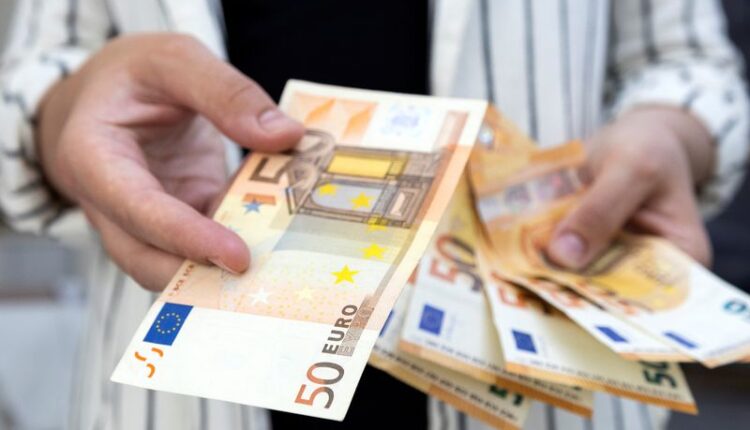Euro set for best week since May after ECB opts for big hike
By Kevin Buckland
TOKYO (Reuters) – The euro headed for its best week since May on Friday after the European Central Bank (ECB) raised borrowing costs more than expected overnight in its first rate hike since 2011.
However, the single currency was well off Thursday’s knee-jerk peak after ECB President Christine Lagarde said that while the monetary authority was moving faster than previously signaled, the terminal rate had not changed.
The central bank was also short on specifics of a new tool aimed at taming peripheral nation bond yields, just as Italian bonds suffer the effects of a collapsed government.
“The details, conditionality and what would justify activation was vague and did little to inspire confidence in light of the Italian political situation,” Tapas Strickland, a markets economist at National Australia Bank (OTC:NABZY), wrote in a note.
He added that the widening spread between Italian and German government bond yields reflected greater political risk and the euro had similarly retreated from its post-ECB meeting peak at $1.0279.
The single currency eased 0.2% on Friday to $1.0205, giving back a little of the previous session’s 0.5% advance, but remained on course for a 1.21% weekly rally.
The dollar index – which measures the greenback against six major peers, with the euro the most heavily weighted – edged 0.08% higher to 106.70, following a 0.36% slide on Thursday. It’s on course for a 1.27% drop since last Friday, its first losing week in four.
The buck was also weighed down overnight by a decline in Treasury yields after data showed a slump in factory activity and a rise in applications for unemployment benefits, signs that the economy is already feeling the effects of aggressive Federal Reserve policy tightening, potentially giving the central bank less to do in future.
Japan’s currency, which is particularly sensitive to changes in U.S. yields, headed for its first winning week since late May.
The dollar was little changed at 137.285 yen, after sliding 0.67% overnight and pulling further away from the 24-year high at 139.38 reached last week.
That was despite the Bank of Japan sticking with ultra easy policy settings on Thursday.
Currencies seen as more sensitive to risk declined on Friday with U.S. stock futures pointing lower, led by a 0.7% drop for Nasdaq eminis as Snapchat owner Snap Inc (NYSE:SNAP) plunged 25% in extended trading after declining to provide a profit forecast amid “incredibly challenging” conditions.
The Aussie dropped 0.25% to $0.6919, paring a weekly advance to 1.84%, though that would still be its best showing since early March.
Sterling eased 0.14% to $1.19875 on Friday, trimming its gain for the week to 0.98%, the most since late May.

